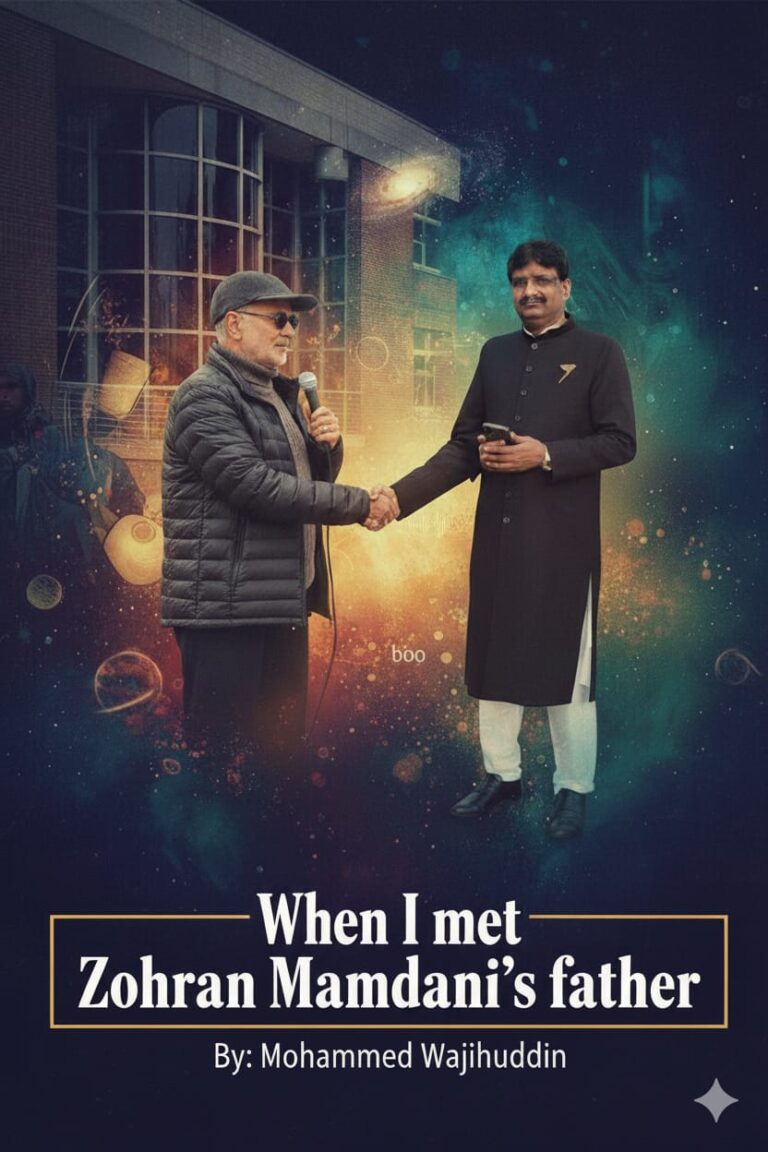
Artificial Intelligence (AI): A Boon or a Bane!
Artificial Intelligence (AI): A Boon or a Bane!
By: M. Burhanuddin Qasmi
Editor: Eastern Crescent, Mumbai
In my understanding, all the creators (engineers) of Artificial Intelligence (AI) are human minds, and the Creator of human minds is Allah (swt) — the Supreme Creator of this entire universe with all its past, present, and future complexities.
AI today evokes a deep duality in the human spirit — astonishment at its abilities, and apprehension over its consequences. It is capable of instant translation, biomedical insights, and space navigation, yet it raises fundamental questions about privacy, agency, and control. This tension between progress and peril compels us to step back and view AI through the lens of divine wisdom: What is humanity’s true role as the crown of all creatures and servant of the Supreme Creator — Allah? And how can we ensure that our tools reflect the divine values of justice, mercy, and truth?
The Qur’an affirms, “We have certainly honored the children of Adam…” (Qur’an 17:70), reminding us that human intellect is a sacred trust. It was Allah (SWT) who “taught Adam all the names” (Qur’an 2:31) — an act seen by scholars as the foundational moment for knowledge, categorization, and learning. That very capacity to create algorithms and artificial neural networks is a manifestation of this divine endowment, not a rebellion against it. As we marvel at AI’s speed, we must also remember, “It is He who created you and endowed you with hearing, sight, and hearts; little do you give thanks” (Qur’an 16:78). AI may process data in seconds, but gratitude and guidance remain uniquely human choices.
The last and final Prophet to this world — Muhammad (saws) — underscored both trust and technical craft. He said, “You know best about your worldly affairs” (Muslim), legitimizing the pursuit of expertise. He taught tawakkul not as passive faith but as active responsibility — “Tie your camel, then trust in Allah” (Tirmidhi). In other words, build with rigor, test with honesty, and then leave the outcome to divine decree. AI development today mirrors this ethic: real success will come not just from capability, but from humility, foresight, and ethical discipline.

To understand AI’s global grip, consider today’s major platforms. OpenAI’s ChatGPT boasts over 800 million weekly users and 180 million daily users globally as of August 2025. Google’s Gemini is bundled across multiple services, with an estimated 400 million monthly active users reported at Google I/O. Microsoft’s Copilot, embedded in Windows and Office apps, serves more than 33 million users. Meta AI, integrated into WhatsApp, Instagram, and Facebook, reaches nearly 1 billion monthly users. Anthropic’s Claude handles over 30 million active accounts, while Perplexity — an AI-powered answer engine — has around 22 million monthly users. Midjourney, DALL·E, and Stable Diffusion dominate image creation, each commanding tens of millions of users. Companion platforms like Character.AI and Replika add another dimension, interacting with over 20 million users monthly. There are also other AI platforms such as China’s DeepSeek, performing remarkably within their domains, though accurate user figures are not publicly available.
These figures show that AI is no longer a niche phenomenon — it is embedded in work emails, school assignments, creative projects, and even spiritual inquiries. Yet, as with all human inventions, the test lies not in novelty but in direction. The Qur’an reminds us, “He created death and life to test which of you is best in deed” (Qur’an 67:2). AI can enable miraculous gains in education, healthcare, and climate modeling — but it can also entrench injustice, surveillance, and deception if unregulated.
Islamic ethics offer clear criteria. “There should be neither harming nor reciprocating harm” (Ibn Majah). This hadith speaks volumes to AI safety, misuse prevention, and the ethics of automation. Another hadith states, “Whoever deceives us is not of us” (Muslim) — a stark warning against opaque algorithms, false information, and unchecked influence operations. Privacy and human dignity are sacred; the Qur’an instructs, “Do not spy on one another” (Qur’an 49:12) and “Stand firmly for justice, even if against yourselves” (Qur’an 4:135).
Viewed this way, AI is neither a pure boon nor an inevitable bane. It is a powerful tool — like fire, electricity, or the atomic bomb. Its nature will be defined by intent, regulation, and the moral compass of its makers and users. When built on ihsan (excellence), used with amanah (trust), and governed with adl (justice), AI becomes a boon: a multiplier of mercy and knowledge, aiding humanity in its service to others. But when driven by greed or hubris, with no ethical compass, it becomes a bane — exclusive, exploitative, and ultimately corrosive.
Still, fear must not overwhelm faith. The Qur’an calls us to reflect deeply: “Indeed, in the creation of the heavens and the earth… are signs for those who reflect” (Qur’an 3:190). Space exploration, information systems, and machine learning are not signs of rebellion, but invitations to contemplation. The Prophet (saws) said, “Whoever treads a path in search of knowledge, Allah will make his path to Paradise easy…” (Muslim). In this spirit, we must learn, adapt, and prepare.

I am confident that over the next five years, as safeguards mature and norms stabilize, AI’s disruptive phase may give way to constructive balance. This is no guarantee — it is a responsibility. With divine guidance and human sincerity, we can harness AI not to dominate us, but to dignify all creations of Allah.
You May Also Like
 Art and Music
Art and MusicAbu Ubaida: Hudhaifa Samir Abdullah al-Kahlout
Abu Ubaida: Hudhaifa Samir Abdullah al-Kahlout By: Khursheed Alam Dawood Qasmi Abu Ubaida, whose...
 Art and Music
Art and MusicWhen I met Zohran Mamdani's father
When I met Zohran Mamdani's father By: Mohammed Wajihuddin Sometime in 2004, I received...
 Art and Music
Art and MusicLanguage: A Voiceless Messenger of the Human Soul
By: Mohammad Taukir Rahmani EC Exclusive If there is any single organ in the...
 Art and Music
Art and Music"A Soul’s Journey Through India’s Heart"
"A Soul’s Journey Through India’s Heart" Mohammad Taukir Rahmani Travel is not just about...
 Art and Music
Art and MusicIn the Shadow of a Legend: Dilip Kumar
Book Review: In the Shadow of a Legend: Dilip Kumar Authored by: Faisal Farooqui...
 Art and Music
Art and MusicA Translator is a Cultural Ambassador, Connects People From Different Backgrounds
A Translator is a Cultural Ambassador, Connects People From Different Backgrounds Gold Medalist on...

Comments (1)
Leave a Comment
Do you mind if I quote a few of your posts as long as I provide credit and sources back to your site? My website is in the very same area of interest as yours and my users would truly benefit from a lot of the information you provide here. Please let me know if this okay with you. Cheers!